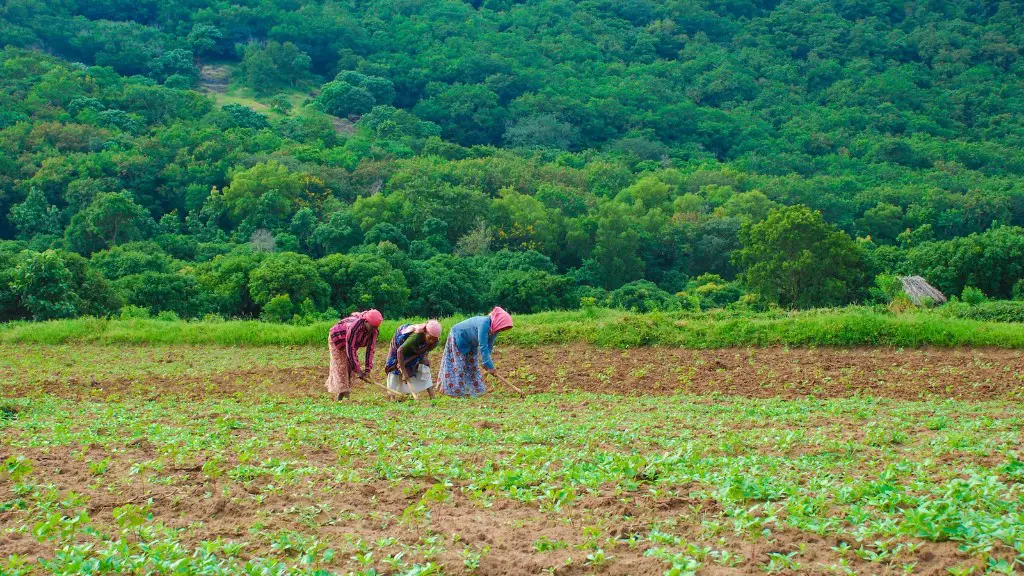Agriculture plays an important role in ensuring food security and providing livelihoods for millions of households across the world. However, it also suffers from a multitude of problems, such as water pollution, land degradation, loss of biodiversity and climate change. To make the sector more sustainable, it is essential to adopt strategies and technologies that support environmentally responsible farming practices. Here are some ways to make agriculture sustainable:
Farm Management Practices
One of the most important aspects of sustainable agriculture is the adoption of sustainable farm management practices. This includes adopting farming practices that maximize crop yields while minimizing the negative impacts on the environment. It also involves the use of effective land management techniques, such as crop rotation, mulching and conservation tillage. Additionally, farmers can use soil and water conservation methods, such as terracing and contour farming, to help protect the soil from erosion and water pollution.
Farmers should also strive to improve their soil health by using organic inputs, such as compost and manure, as well as applying cover crops to protect the soil from erosion. Furthermore, farmers should also consider integrating animals, such as chickens, cows and sheep, into their agricultural systems to improve nutrient cycling and soil fertility.
Organic Practices
Organic agriculture is another way to make farming more sustainable. This involves avoiding the use of synthetic fertilizers and pesticides and focusing instead on natural methods of pest control, such as crop rotation, intercropping and companion planting. Additionally, organic farmers also strive to maintain and improve soil fertility through the use of cover crops, animal manure and compost.
Organic farming also promotes the increased diversity of crops and animals on a farm, which helps to increase nutrient cycling and build soil health. Furthermore, it is also important to maintain long crop rotation systems and avoid monoculture, as this practice decreases soil fertility and increases the risk of pest and disease outbreaks.
Sustainable Water Management
Sustainable water management is an essential part of sustainable agriculture. This involves the use of soil moisture sensors and other water monitoring technologies to understand and manage crop water needs efficiently. Additionally, farmers should use efficient irrigation techniques, such as drip and sprinkler, to conserve water and reduce runoff. Furthermore, they should also use water-saving techniques, such as mulching and rainwater harvesting, to reduce water usage.
Farmers should also strive to reduce water pollution by using best management practices, such as crop rotation and buffer strips. Additionally, they should allow for return flows and recharge of groundwater, and keep pesticides and fertilizers out of watercourses.
Sustainable Energy Practices
Sustainable energy practices are also essential for the adoption of sustainable agriculture practices. Renewable energy sources, such as solar, wind and geothermal power, are key components of an environmentally responsible farm. Additionally, the use of energy-efficient farm machinery, such as electric-powered tractors, can reduce the usage of fossil fuels and minimize emissions.
Farmers should also strive to reduce their overall energy consumption and carbon footprint. This can be done by adopting good energy management practices, such as installing insulation and efficient lighting, and utilizing sustainable transport solutions, such as electric vehicles.
Financial Management Practices
Financial management is another key component of sustainable agriculture. Farmers should strive to make the most of available resources, such as land, water and labor, by utilizing cost-saving and profit-maximizing strategies. This includes practices such as diversifying production, reducing overhead costs and using credit wisely. Additionally, farmers should also consider setting aside funds for long-term investments in sustainability.
Furthermore, farmers should consider ways to increase efficiency and profits through effective marketing strategies and business practices. They should also strive to increase the resilience of their farms by investing in insurance and other risk management tools.
Building Community Capacity
Finally, building community capacity to make agriculture sustainable is essential. This involves engaging the local community in debates and dialogues on sustainable agriculture. Additionally, it also requires the formation of partnerships between stakeholders, such as farmers, NGOs, policy makers and investors, to identify needs and solutions. It also includes equipping farmers with the necessary knowledge, resources and capacity to adopt sustainable farming practices.
Furthermore, it is important to ensure that local communities have access to adequate financial resources and incentives. This includes providing access to credit and insurance, as well as facilitating access to markets through relevant policies and programs.



